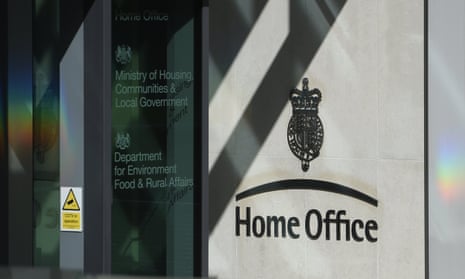The Home Office faces a legal challenge over the fees it charges for registering a child as a British citizen, with critics saying they “destroy the futures of children who’ve grown up British for profit”.
Thousands of children living in the UK, who were born in the country or came at a young age, are obliged by law to pay £1,012 to register as British citizens.
The Project for Registration of Children as British citizens (PRCBC) and Amnesty International UK are seeking a judicial review heard by the high court to get these fees lowered and scrapped for those who cannot afford them.
Campaigners say the extortionate charges are forcing families into destitution, with one mother forced to choose between food and saving money for her child. They say profits made from children’s applications are used to offset unrelated immigration costs even though many children affected were born in the UK and have never left.
“An estimated 120,000 children in the UK who have grown up British are being charged unaffordable fees to register their citizenship rights. The futures of these children are slowly and silently being chipped away. Such barefaced profiteering from children by the Home Office is utterly shameful,” said Solange Valdez-Symonds, director at PRCBC.
The registration fee applies to all children, including those living in poverty, the disabled and those in local authority care.
The judicial review calls for the Home Office to set the registration fee at £372 – which covers administrative costs – and introduce a waiver for those children who cannot afford it and for children in council care.
Valdez-Symonds said the Home Office was making hundreds of pounds in profits. “Our main legal arguments are that you should not be profiteering from children who have an entitlement or right in law to register as British citizens,” she said.
When children turn 18, they may lose the right to register, but a lot of individuals only realise they need to raise the huge fee shortly before they become adults, Valdez-Symonds said.
“Our concern is also that we see children who cannot afford these fees, and these children become adults and are then prevented from exercising everyday rights such as travelling and going to university,” she said.
Daniel, 15, who came to Britiain with his mother when he was three struggled to afford fees. Money was raised for him through charitable donations and he was given legal advice. Without this he would not have been able to afford the costs.
He said: “My mother saved what she could but sometimes she didn’t eat properly so she could do this. At the time, we had some support from the council but my mother was not then permitted to work except unpaid as a volunteer with a charity. It has been really difficult for my mother.”
Chai Patel, the legal policy director at the Joint Council for the Welfare of Immigrants, said the Home Office was willing “to destroy the futures of children who’ve grown up British for profit”.
Scottish National Party MP for Cumbernauld, Stuart McDonald, said: “When I asked the new home secretary about this issue, he accepted that the fee was a huge amount to ask children to pay. He was right - and so he should act immediately to reduce or waive the fee.”
The Home Office said: “We keep all Home Office fees under regular review. When setting immigration and nationality fees, which are approved by parliament, fees legislation allows us to take into account the wider costs involved in running our border, immigration and citizenship system, so that those who directly benefit from it contribute to its funding. This reduces the burden on UK taxpayers.”








